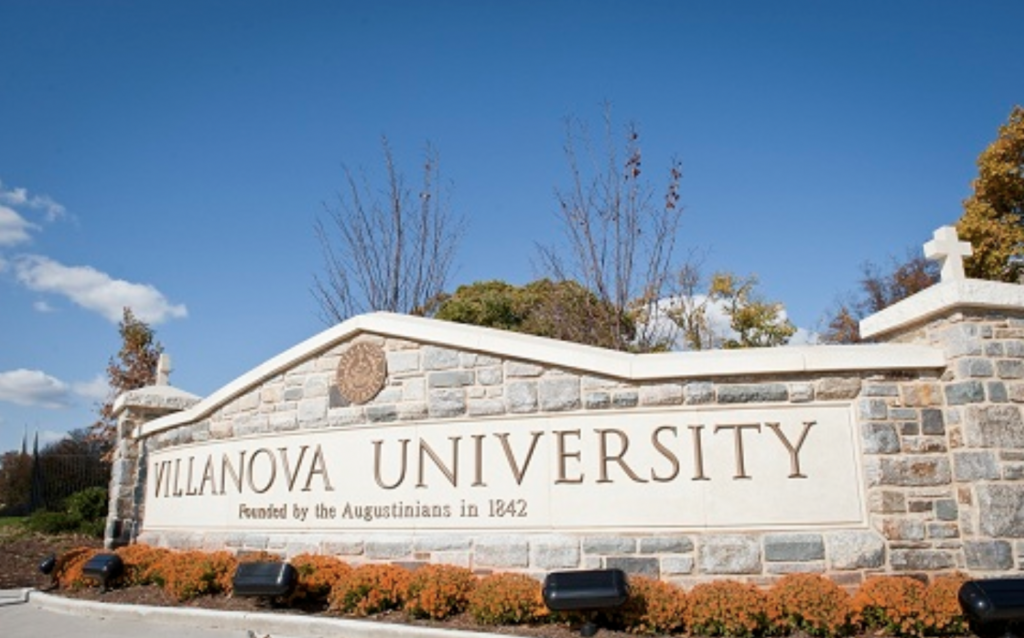Kayla Kouahou ’28
The University of Pennsylvania and Villanova University are among several institutions currently facing a federal lawsuit. The litigants allege that these schools utilize discriminatory practices to target students who come from divorced or separated households.
The lawsuit, filed in late 2023, claims that the use of the College Scholarship Service’s (CSS) Profile unfairly increases students from such families’ cost of attendance when determining financial aid. The plaintiffs—a group of students accusing universities of participating in a “price-fixing scheme”—contend that the CSS Profile’s requirement for both custodial and non-custodial parents to report income can overestimate financial resources. This not only makes it harder for these students to qualify for aid but also adds an additional financial burden on their families.
The CSS Profile, run through CollegeBoard, is a detailed and demanding application method, requiring extensive financial information from both the custodial and non-custodial parent as opposed to the Free Application for Federal Student Aid (FAFSA), which only requires information from the custodial or mainly present parent. While private colleges commonly use the CSS Profile to determine eligibility for institutional aid, its dual-reporting requirement may create barriers that are especially prevalent for families with strained or non-existent parental relationships. For families with limited communication between guardians or families with non-custodial parents unwilling to share financial information, students can find themselves excluded from financial aid as a whole. In addition, the dual-reporting requirement can significantly reduce the amount of aid these students receive, as both parents’ incomes are often considered even if they are not jointly supporting the student.
The heart of the allegations, however, echoes that of a previous lawsuit filed in 2022. This original lawsuit, filed in Illinois’ U.S. District Court, was centered on the 568 Presidents Group, a coalition of institutions that were granted immunity from antitrust laws concerning federal aid in 1994. Originally, the plaintiffs accused a group of 17 prestigious universities of colluding to limit financial aid offers by sharing pricing information, effectively reducing competition, and keeping aid amounts lower than they would normally be. This lawsuit resulted in a $248 million dollar settlement in which specific previous financial aid recipients of included schools have been able to file to receive a portion of this settlement. Although broader in scope, it helped raise awareness to the public about the lack of transparency in financial aid policies and the way these practices can create barriers for certain groups of students.
In the 2023 lawsuit, the plaintiffs are specifically challenging the CSS Profile’s treatment of students from divorced or separated households. They argue that requiring financial information from both parents unfairly penalizes students with parents who may not communicate or who have unresolved legal or financial disputes. For universities like Penn and Villanova, which both pride themselves on their robust financial aid packages, this lawsuit could lead to significant reputational and financial implications. Families who once saw these institutions as champions of opportunity might start to question whether their financial aid policies are truly as inclusive as they claim. Furthermore, should the plaintiffs win, schools could face pressure to provide additional aid or make policy changes to address the specific needs of students from divorced families.
Ultimately, if the court sides with the plaintiffs, the outcome could have far-reaching consequences for financial aid policies across the country. Universities could be compelled to revise their financial aid requirements and modify the CSS Profile to be more equitable for divorced families or move away from the CSS Profile as a whole. Reflecting on the issues brought up by the lawsuit, Ashley Foppa Djuenya ’25 says, “If the family isn’t rich or is middle-middle class, universities should take into account one, if both parents are still contributing and two, the burden on the breadwinner if only one parent is contributing. So yes, I think that in cases such as those listed, universities should adjust their policies to better support students.” This sentiment resonates with the plaintiffs’ stance, who argue that financial aid policies must reflect a fair assessment of each student’s individual circumstances, not just a blanket formula that may inadvertently exclude students from non-traditional family backgrounds.)

Photo courtesy of Villanova University
As the lawsuit progresses, universities and policymakers will be closely watching for any rulings that might prompt broader reforms. Financial aid experts suggest that if the court finds CSS Profile requirements to be unduly burdensome for divorced families, other institutions may also have to reconsider their policies to avoid similar legal challenges. For families, the outcome of this lawsuit could mean an easier, more supportive financial aid process that does not disproportionately penalize students from divorced homes. For the broader education sector, this case could be a catalyst for long-overdue reforms, prompting institutions to re-evaluate the fairness and accessibility of their financial aid policies.
The CSS Profile’s treatment of separated families is likely to remain a contentious issue. Financial aid practices are notoriously difficult to reform, as they are deeply embedded in institutional policies and influence budget allocations. Even so, this lawsuit could mark the beginning of a shift towards more flexible and inclusive financial aid systems that better account for the diversity of students’ family backgrounds.
Overall, the lawsuit against Penn, Villanova, and other universities brings to light a critical question: Should financial aid policies adapt to the changing dynamics of the modern family? As the legal process unfolds, students, families, and universities alike will await answers that could redefine what it means to provide fair access to higher education.